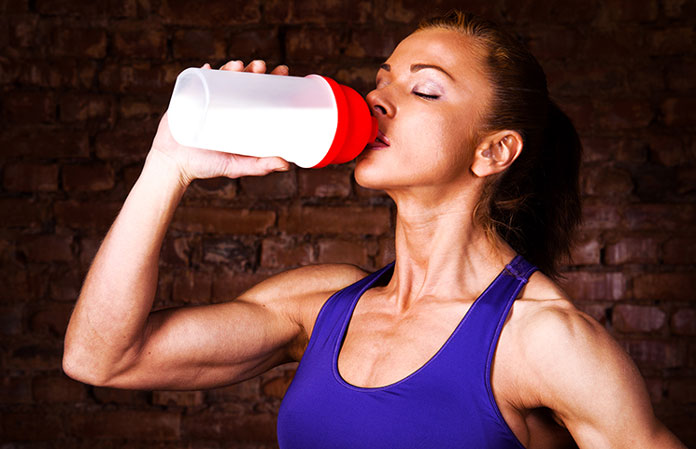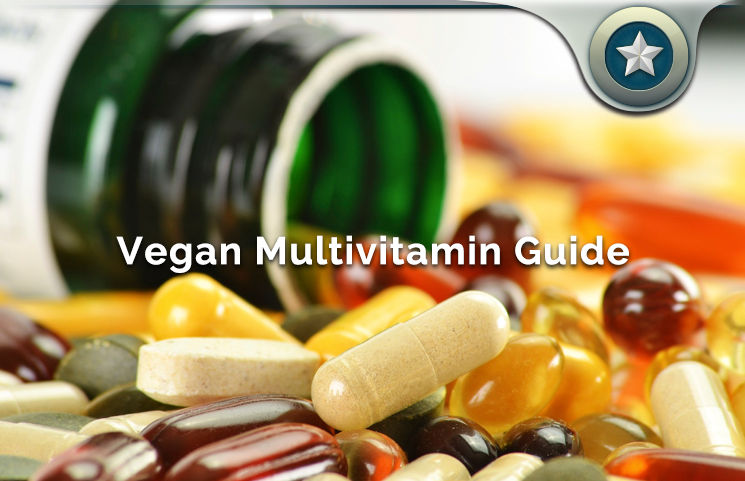Vegans are people have decided to abstain from consuming animal products and byproducts. As a vegan, it is advisable to beware of the inclusion of animal products in some multivitamins.
The most common animal product that is included in multivitamins is gelatin. It is used as a multivitamin stabilizer, and it is produced from animal bones and other organs obtained from the cow's body.
Vitamin D3 is derived from the lanolin present in sheep wool. In this article, we are going to discuss vegan multivitamins and the top products that are available in the market. Vegans may think that their bodies do not get sufficient nutrition. However, studies have shown that it is possible to eat a balanced diet while excluding meat products and byproducts. The addition of a multivitamin to the diet provides the vegan with their nutritional needs.
Vegan Multivitamins And Products
1. Vitamin B12
Vitamin B12 for vegans can only be found in foods that have been fortified with laboratory-cultured vitamin B12. The availability of vitamin B2 in the body is determined by the ability of the intestines to absorb it into the blood. Some people have insufficient levels of vitamin B12 due to their inability to absorb it into the blood.
It is advisable to go for a random blood test to find out whether vitamin B12 is within the required level. Vitamin B12 deficiency is associated with several health problems including irreversible damage to the nerves.
Vitamin B12 deficiency can be avoided through the intake of B12 supplements. Vitamin B12 is available in various dosage forms in the market. You may choose to take the lozenges or tablets. The lozenge should be placed under the tongue and left to dissolve.
Once it has dissolved, vitamin B12 gets absorbed via the mouth's capillaries into the blood. The side effects of these products are rare. However, it is important to consult a physician before their intake.
Supplement industries use two different forms of vitamin B12 in the manufacture of B12 supplements. They include methylcobalamin and cyanocobalamin. Studies have shown that cyanocobalamin is the best although many users are leaning towards methylcobalamin.
The most recommended B12 product in the market is Deva Vegan Multivitamin, Mineral Supplement. It is 100 percent organic and 100 percent free of animal products and byproducts. The supplement also has vitamins A, C, and E. It is suitable for individuals who do not need extra iron since it does not have iron. However, it is not appropriate for persons who have iron deficiency.
Common side effects of vitamin B12 products include involuntary movements, anxiety and breathing difficulty. You may also experience sleep disturbances that lead to insomnia.

2. Calcium
Most people associate calcium with animal products. Despite this false claim, vegans can find sufficient supply of calcium from diets comprising of almonds, Brazil nuts, and vegetables such as kale.
Most almond milk products actually have more calcium content than cow's milk. It is important to check the label to confirm whether the brand has an adequate dose of calcium. A regular intake of calcium products can help ensure appropriate intake of calcium by vegans.
The calcium contents in beans vary with the soybeans and the white beans having the most calcium content. It is important to consume calcium-rich vegan milk, greens, and tofu to attain the US RDA of 100 milligrams per day. The best product for vegans is Devas Vegan Calcium Magnesium Plus. The supplement is enriched with nutrients that help maintain a healthy bone structure and development.
The product is formulated with four different sources of calcium that are absorbable in the small intestine. It has several health benefits such as the provision of robust and healthy bones, as well as maintaining healthy calcium levels in the body. The product is formulated with Horsetail Herb Silica Extract which enhances the bioavailability of calcium.
The side effects associated with DEVAS Calcium Magnesium Plus include abdominal disturbance, nausea, and vomiting.
3. Vitamin D
Vitamin D plays a significant role in the body as it works along with calcium to promote the growth and development of bones. There are three primary sources of the vitamin. The most common source is sunlight. Vitamin D can also be obtained through the drinking of fortified milk.
The third most common source of the vitamin is supplements. Vitamin D supplements benefit most people, both vegans and omnivores. During winter seasons, it is not possible to obtain vitamin D through exposing the skin to direct sunlight.
The ultraviolet B rays produced by the sun during winter are not sufficient to stimulate the production of vitamin D in the skin. During this season, vegans can obtain an adequate supply of vitamin D through the intake of soy or almond milk.
The top product in the market containing vitamin D for vegans is the Slice of Life Vegetarian Multi-Vitamin. The product is formulated in liquid form making it convenient for persons who cannot swallow the solid dosage form. It is potent, fruit-based, and pectin gummy. It is free of allergens, gluten, and dairy. It is also an excellent source of vitamin C.

4. Omega-3 And DHA
There are several vegan sources for omega-3. They include chia seeds, walnuts, and pumpkin seeds to a lesser extent. The most convenient ways of getting omega-3 involve consuming chia seeds and walnuts. Several vegan recipes include chia seeds.
Chia seeds can be consumed by adding them to smoothies. The omega-3 fatty acids get converted to DAH and EPA. Due to this, companies have produced several DHA/EPA supplements which are available in the market. However, they are more expensive than the omega-3 supplements. The vegan DHA/EPA are derived from algae, unlike the non-vegan which is derived from fish.
The most affordable vegan DHA/EPA products include Amala Vegan Omega-3 and Deva Vegan Omega-3 DHA. Amala Vegan Omega-3 is a natural blend of essential fatty acids that are obtained from algae. It offers the same health benefits as fish oil.
The advantage it has over fish oil is that it has less aftertaste. The product also contains vitamin E which has beneficial effects to various organs such as the brain, heart, and the immune system.
5. Protein Powders
Most vegans find protein powders as the most convenient source of protein. Protein powders are the most practical and affordable way of ensuring sufficient supply of proteins to the body. Vegan foods that are rich in proteins include wheat gluten and beans.
However, these foods are hard to digest making them unsuitable for young vegans. Vegan protein powders provide the best alternative to the hard-to-digest vegan foods. A spoonful of vegan protein powder can provide a percentage of proteins that is equal to that found in a 16-ounce can of beans.
An adult is required to take on a daily basis one gram of protein per kilogram of body weight. Much of the protein consumed on a regular basis should be sourced from lysine-rich foods including seeds, quinoa, beans, and nuts.
It is advisable for a vegan to ensure that they choose meals that have at least one protein-rich item. A vegan protein powder is the best alternative for persons who cannot gain sufficient protein from their diet. Orgain Organic Protein is the most common brand that contains vegan protein powder.
The product is delicious, and it contains 21 grams of organic protein as well as five grams of organic fiber per serving. Orgain Organic Protein is soy free and non-GMO. It does not include any artificial flavors which may result in an allergic reaction to the user.
The product is perfect for nourishing busy professionals, athletes, and moms. The vegan protein supplement enhances the growth and development of muscles through the provision of amino acids which are the building blocks for muscle growth.
The product rarely causes any side effects. However, high doses can lead to bloating, fatigue, anorexia, and increased bowel movements.

6. Iron
A lot of vegan foods are rich in iron. They include seaweed, leafy green vegetables, and seaweed. However, some vegan populations such as pregnant women can find it a bit difficult to obtain adequate iron from these foods. Such populations can quickly get a sufficient supply of iron from iron supplements.
A multivitamin that contains iron can also provide an appropriate amount of iron to pregnant women. However, it is not advisable to take iron supplements without seeking advice from a medical doctor or pharmacist. Too much iron in the body can lead to health complications.
There are several iron supplements available in the market. The top product that contains iron is the Veglife Iron Vegan Tablet. The ingredients included in the product include stearic acid, vegetable cellulose, and magnesium stearate. It also contains vitamin C, folic acid, and vitamin B12. They are formulated with vitamin C, folic acid, vegiblend food base.
Veglife Iron Vegan Tablet has several health benefits such as promoting healthy hemoglobin levels in the body. Side effects are extremely rare. However, it is advisable to consult a physician before taking these supplements.
Vegan Multivitamin Final Thoughts
Although a vegan diet has more nutrients than an omnivorous diet, certain nutrients cannot be obtained in adequate amounts from plants alone. Vegans should consider taking multivitamins as a way of ensuring that you provide your body with the exact nutritional requirement.









